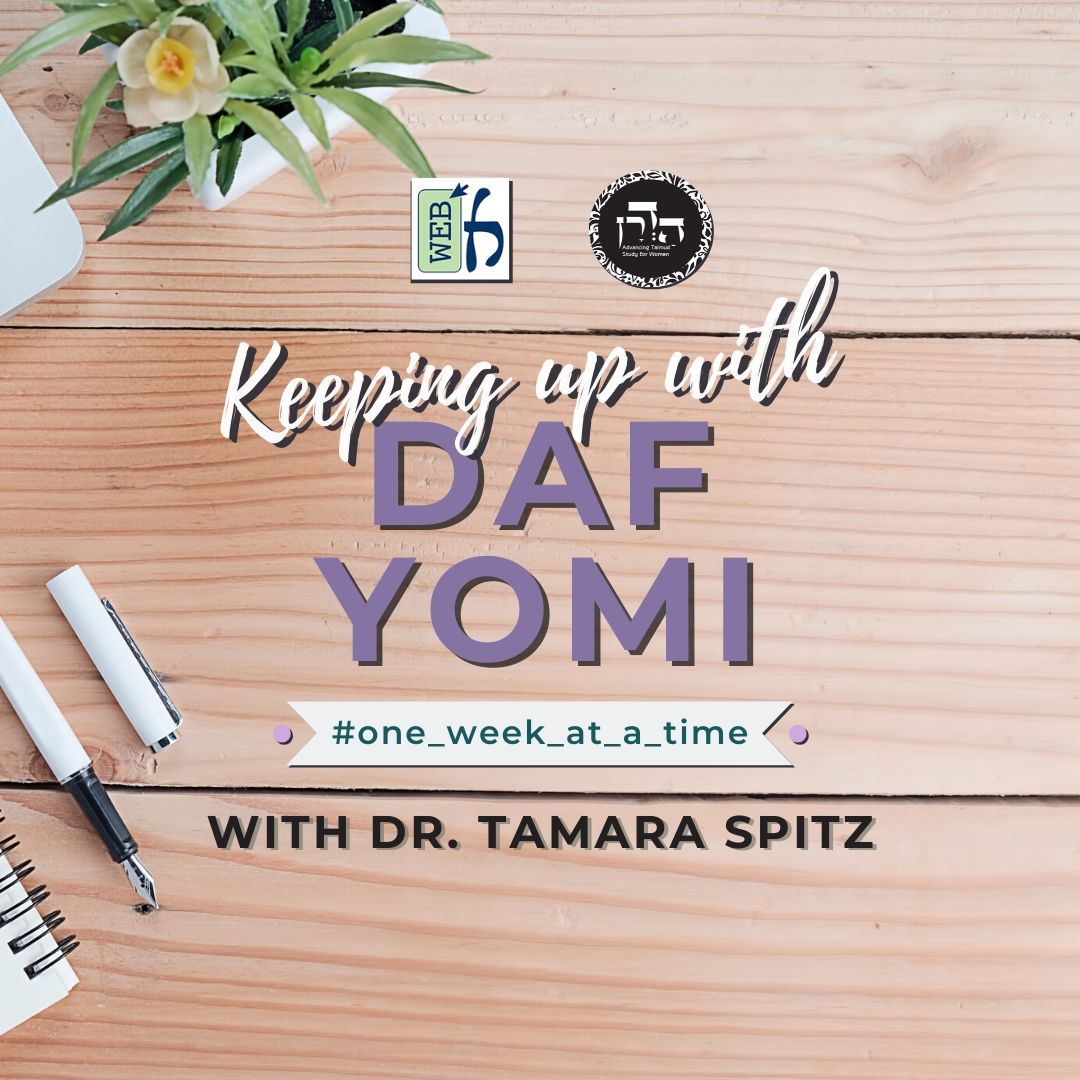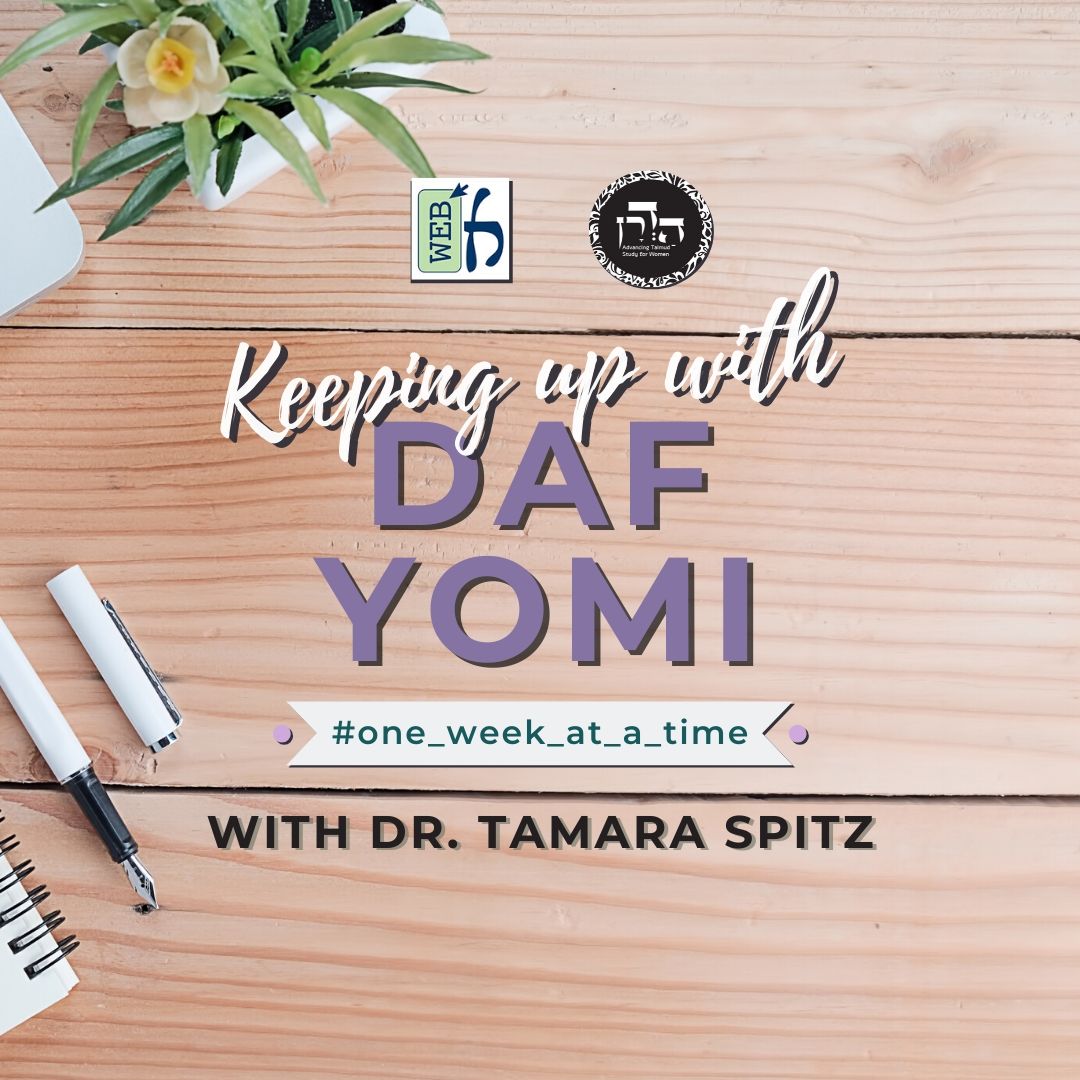Ketubot 92
וַאֲתָא בַּעַל חוֹב דִּרְאוּבֵן וְקָטָרֵיף לֵיהּ מִינֵּיהּ — דִּינָא הוּא דְּאָזֵיל שִׁמְעוֹן וּמְפַצֵּי לֵיהּ.
and Reuven’s creditor came and repossessed the field from him, i.e., from Reuven, the law is that Shimon must go and compensate [mefatzei] Reuven, since he sold him the field with a guarantee, while Reuven owes Shimon nothing, since he sold him the field without a guarantee.
אֲמַר לֵיהּ רָבָא: נְהִי דְּאַחְרָיוּת דְּעָלְמָא קַבֵּיל עֲלֵיהּ, אַחְרָיוּת דְּנַפְשֵׁיהּ מִי קַבֵּיל עֲלֵיהּ?
Rava said to him: Granted, that Shimon took upon himself to guarantee the sale in general, i.e., if the field were to be repossessed by his own creditors or those of a previous owner of the field; did he also take upon himself to guarantee the sale if it were to be repossessed by the purchaser’s own creditors?
וּמוֹדֶה רָבָא בִּרְאוּבֵן שֶׁיָּרַשׁ שָׂדֶה מִיַּעֲקֹב, וּמְכָרָהּ לְשִׁמְעוֹן שֶׁלֹּא בְּאַחְרָיוּת, וַאֲתָא שִׁמְעוֹן וּמְכָרָהּ לִרְאוּבֵן בְּאַחְרָיוּת, וַאֲתָא בַּעַל חוֹב דְּיַעֲקֹב, וְקָטָרֵיף לֵיהּ מִינֵּיהּ — דִּינָא הוּא דְּאָזֵיל שִׁמְעוֹן וּמְפַצֵּי לֵיהּ מִינֵּיהּ.
The Gemara notes: And Rava concedes to Rami bar Ḥama in the following case: Reuven inherited a field from his father, Ya’akov, and sold it to Shimon with no guarantee. Shimon came and sold it back to Reuven with a guarantee. Then, Ya’akov’s creditor came and repossessed the field from Reuven. In this case, Rava would concede that the law is that Shimon must go and compensate Reuven for his loss.
מַאי טַעְמָא? בַּעַל חוֹב דְּיַעֲקֹב כְּבַעַל חוֹב דְּעָלְמָא דָּמֵי.
The Gemara asks: What is the reason for this halakha? The Gemara answers: Ya’akov’s creditor is comparable to a general case of a creditor, i.e., a creditor of a previous owner. Even Rava would agree that this is not comparable to a case where Reuven’s creditor repossessed the field. Consequently, Shimon bears responsibility to compensate Reuven.
אָמַר רָמֵי בַּר חָמָא: רְאוּבֵן שֶׁמָּכַר שָׂדֶה לְשִׁמְעוֹן בְּאַחְרָיוּת, וְזָקַף עָלָיו בְּמִלְוָה, וּמֵת רְאוּבֵן, וַאֲתָא בַּעַל חוֹב דִּרְאוּבֵן וְקָטָרֵיף לַהּ מִשִּׁמְעוֹן וּפַיְּיסֵיהּ בְּזוּזֵי —
Rami bar Ḥama said: Consider a case where Reuven sold a field to Shimon with a guarantee that if it is repossessed he will compensate Shimon for his loss. Shimon did not pay for the purchase, and instead set up the value of the field as a loan by writing a promissory note for this amount. Reuven subsequently died, and a creditor of Reuven came and repossessed the field from Shimon. Shimon, not wanting the creditor to take the field from him, tried to appease him with money so the creditor would allow him to keep the field.
דִּינָא הוּא דְּאָמְרִי לֵיהּ בְּנֵי רְאוּבֵן: אֲנַן מִטַּלְטְלִי שְׁבַק אֲבוּן גַּבָּךְ, וּמִטַּלְטְלִי דְיַתְמֵי לְבַעַל חוֹב לָא מִשְׁתַּעְבְּדִי.
The law is that the sons of Reuven can say to Shimon that he must pay them the money he owes for the field, and they are not required to pay Shimon if he demands compensation for the repossession of the field. They may say to him: Our father left us movable property with you, i.e., the money you owe us for the field, and the movable property of orphans is not liened to a creditor. The orphans can claim that the field belongs to Shimon, and as there is no land left for the orphans, there is no way for Shimon to recover the compensation that he is owed. The money he owes Reuven is considered movable property, and therefore he cannot recover his losses from these funds.
אָמַר רָבָא: אִי פִּקֵּחַ אִידַּךְ, מַגְבֵּי לְהוּ נִיהֲלַיְיהוּ אַרְעָא וַהֲדַר גָּבֵי לַהּ מִינַּיְיהוּ, כְּרַב נַחְמָן. דְּאָמַר רַב נַחְמָן אָמַר רַבָּה בַּר אֲבוּהּ: יְתוֹמִים שֶׁגָּבוּ קַרְקַע בְּחוֹבַת אֲבִיהֶן — בַּעַל חוֹב חוֹזֵר וְגוֹבֶה אוֹתָהּ מֵהֶן.
Rava said with regard to this case: If the other individual, Shimon, is clever he will pay them what he owes with real estate and not with money. Since they now have real estate inherited from their father’s estate, Shimon can then collect the field from them as compensation for the repossession of the original field that Reuven sold to Shimon. This is in accordance with the opinion of Rav Naḥman, as Rav Naḥman said that Rabba bar Avuh said: When orphans collect real estate for a debt owed to their father from one person, their father’s creditor can come and seize this land from them.
אָמַר רַבָּה: רְאוּבֵן שֶׁמָּכַר כׇּל שְׂדוֹתָיו לְשִׁמְעוֹן, וְחָזַר שִׁמְעוֹן וּמָכַר שָׂדֶה אַחַת לְלֵוִי, וַאֲתָא בַּעַל חוֹב דִּרְאוּבֵן — רָצָה מִזֶּה גּוֹבֶה, רָצָה מִזֶּה גּוֹבֶה.
The Gemara addresses a similar matter. Rabba said: If Reuven sold all his fields to Shimon, and Shimon then sold one field to Levi, and then Reuven’s creditor came to repossess one of the fields that was mortgaged to him: If he desires, he can collect from this one, Shimon, and if he desires, he can collect from that one, Levi, since he has a lien that applies equally to all the properties that once belonged to Reuven.
וְלָא אֲמַרַן אֶלָּא דְּזַבְּנֵהּ בֵּינוֹנִית, אֲבָל זַבְּנֵהּ עִידִּית וְזִבּוּרִית, מָצֵי אֲמַר לֵיהּ: לְהָכִי טְרַחִי וּזְבַינִי אַרְעָא דְּלָא חַזְיָא לָךְ.
And we said this only if Shimon sold Levi land of intermediate quality, but if he sold him land of superior quality or inferior quality, Levi can say to the creditor: It was for this reason that I made an effort to buy land that is not fit for you, as a creditor is supposed to repossess land of intermediate quality. Therefore, go to Shimon and collect your debt from the land of intermediate quality that is in his possession.
וּבֵינוֹנִית נָמֵי לָא אֲמַרַן, אֶלָּא דְּלָא שְׁבַק בֵּינוֹנִית דִּכְווֹתַהּ,
The Gemara notes further: And even if Shimon sold Levi land of intermediate quality, we said that the creditor may repossess Levi’s land only in a case where Levi did not leave Shimon with equivalent land of intermediate quality.
אֲבָל שְׁבַק בֵּינוֹנִית דִּכְווֹתַהּ, מָצֵי אָמַר לֵיהּ: הִנַּחְתִּי לָךְ מָקוֹם לִגְבּוֹת הֵימֶנּוּ.
However, if Levi left similar land of intermediate quality with Shimon, he can say to the creditor: I have left you a place from which to collect; go and collect from Shimon.
אָמַר אַבָּיֵי: רְאוּבֵן שֶׁמָּכַר שָׂדֶה לְשִׁמְעוֹן בְּאַחְרָיוּת, וַאֲתָא בַּעַל חוֹב דִּרְאוּבֵן וְקָטָרֵיף לַהּ מִינֵּיהּ, דִּינָא הוּא דְּאָזֵיל רְאוּבֵן וּמְפַצֵּי לֵיהּ. וְלָא מָצֵי אֲמַר לֵיהּ: לָאו בַּעַל דְּבָרִים דִּידִי אַתְּ. מִשּׁוּם דְּאָמַר לֵיהּ: דְּמַפְּקַתְּ מִינֵּיהּ, עָלַי הָדַר.
Abaye said: In a case where Reuven sold a field to Shimon with a guarantee that if the field is repossessed, he will compensate Shimon for his loss and Reuven’s creditor comes and repossesses the land from Shimon, the law is that Reuven goes and rescues Shimon by attempting to forestall the repossession, and the creditor cannot say to Reuven: I am not legally answerable to you since I am taking the field from Shimon. This is because Reuven can retort: What you take from him comes back to me: Since I guaranteed the sale and will ultimately have to compensate Shimon, you cannot claim that I am not a legal party in this matter.
וְאִיכָּא דְּאָמְרִי: אֲפִילּוּ שֶׁלֹּא בְּאַחְרָיוּת נָמֵי, דְּאָמַר לֵיהּ: לָא נִיחָא לִי דְּתֶהְוֵי לֵיהּ לְשִׁמְעוֹן תַּרְעוֹמֶת עָלַי.
And there are those who say that even if Reuven sold Shimon the field with no guarantee, he can also join in the deliberations and attempt to forestall the repossession of the land. This is because Reuven can say to the creditor: It is not amenable to me that Shimon will have a grievance against me for having sold him land that was then repossessed.
אָמַר אַבָּיֵי: רְאוּבֵן שֶׁמָּכַר שָׂדֶה לְשִׁמְעוֹן שֶׁלֹּא בְּאַחְרָיוּת, וְיָצְאוּ עָלָיו
Abaye said: In a case where Reuven sold a field to Shimon with no guarantee, and it emerged that he had





































